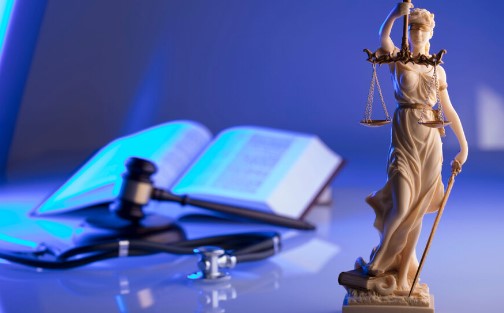Did someone else’s carelessness cause you harm in New Jersey? If so, you might want to file a personal injury claim to get money for your medical bills, lost pay, and pain and suffering.
What if you were partly to blame for the accident, though? In this case, the idea of comparative negligence comes into play.
The comparative negligence rule in New Jersey tells you how your fault affects how much money you might get. If you want to talk to a good personal injury lawyer in New Jersey about your rights and choices, click here.
What is comparative negligence?
Comparative negligence is a legal concept that helps figure out who shares the blame in an accident. In states like New Jersey that have comparative negligence rules, someone who was hurt can still get money even if they were partly to blame for the accident. However, the amount of money they get in the settlement will go down based on how much fault they have.
The modified comparative negligence rule in New Jersey.
The rule that applies in New Jersey is “modified” comparative negligence. This means that the plaintiff’s (the person who was hurt) share of the fault must be less than 50% to get financial compensation. People who file a lawsuit can not get any money if they are found to be 50% or more at fault.
How can your actions affect your claim?
How much fault you are given in an accident will have a big effect on your personal injury claim in New Jersey. What you do can change your claim in these ways:
- Take reasonable precautions.
You can make your case stronger by taking steps to avoid an accident. The property owner might say that you were partly to blame if you slipped and fell on a wet floor because you were not paying attention to a sign.
- Take safety warnings seriously.
Not paying attention to written safety warnings or directions can make your claim much weaker. For example, you could be found fully responsible if you got hurt while trespassing on private land that had “No Trespassing” signs up.
- Share responsibility.
In some situations, more than one person may be to blame for your injuries. In the event of a slip-and-fall accident, the property owner and the cleaning company might both be to blame. A lawyer can help you figure out who is responsible and file claims against them.
How to determine fault in a personal injury case.
In New Jersey, the fault is decided in a personal injury case by looking at several different factors. Some of these are:
- What caused the accident?
What was it that caused the accident? Was it because the property owner was not paying attention, someone else, or a mix of both?
- How bad are your injuries?
The amount of money you can get from your claim will depend on how bad your injuries are. If your injuries are severe, you may get a higher settlement.
- What both sides did in this case.
When you file a claim against someone, the court will look at what both those people did. Did you do anything to keep the accident from happening? Did the other person break any rules about safety?
The impact of comparative negligence on settlement negotiations.
Comparative negligence can also change how a deal is negotiated. Insurance companies might try to lower the amount of money they pay out by using how much you were at fault. A good lawyer who can fight for your rights and help you reach a fair deal is very important.
Read also: Understanding Appeal Lawyers
Legal representation is important in personal injury cases.
A personal injury lawyer with a lot of experience can help you understand the complicated laws, especially when there is a question of comparative negligence.
They can do this by looking into your claim, gathering evidence, negotiating with insurance companies, and maybe even going to court to help you get fair compensation.


